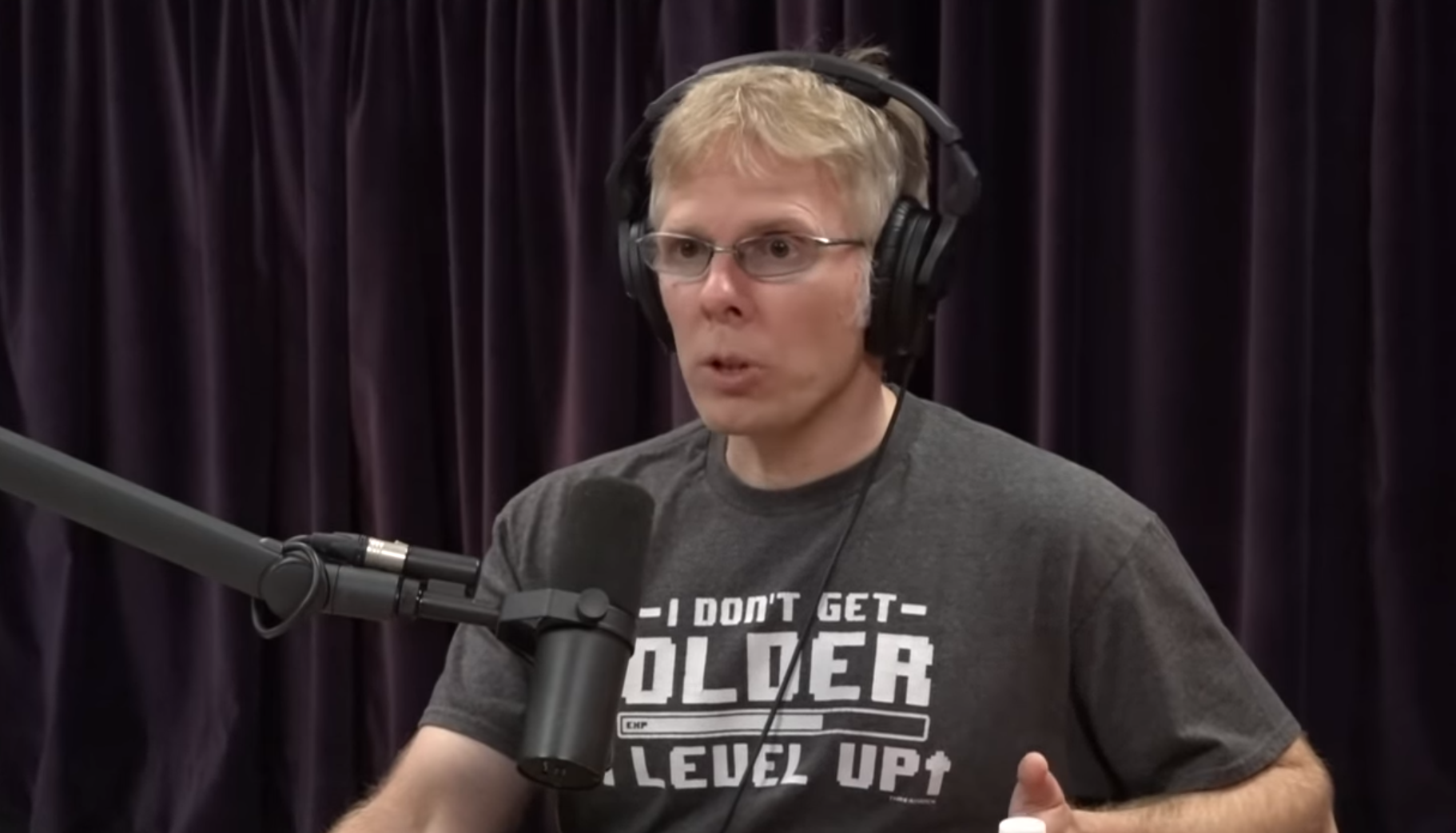‘Doom’ Programmer John Carmack Says Games Industry Doesn’t Need Laws Against Crunch

Credit to Author: Matthew Gault| Date: Fri, 30 Aug 2019 16:06:47 +0000
Doom programmer and game industry legend John Carmack recently went on Joe Rogan’s podcast, a show downloaded by millions each month and a favored space for men to launder bad ideas. The pair talked about judo training, the future of virtual reality, the magnificence of space rockets (which Carmack has designed), and labor in the video game industry. Rogan asked about the long hours developers work to ship a game, often under brutal time constraints, which are known in the industry as “crunch.”
Carmack acknowledged that people in the industry work very long hours, and that the long hours he’s put into creating Doom and other games have made him rich. But ultimately, he doesn’t believe game developers should be prevented from working long hours by law. Growing labor organization efforts in the games industry cite crunch as one of the main reasons developers need to unionize.
“There’s some serious debate about it. Some people despise that about the industry, that no one should work that hard,” Carmack said. “And there are people that think there literally should be laws that prevent people from working that hard. I always have to argue against that. There is a power to obsession and being able to obsess over something—your life’s work. Instead of work-life balance, it’s your life’s work.”
Earlier in the conversation, Carmack described how he works. He puts in 13-hour days and experiences a productivity drop off if he pushes it further. He feels guilty about working less than 60 hours a week. He also became a millionaire in his early 20s because he was a co-founder of id Software, not exactly the lived experience of most video game workers.
“Making games is really really hard,” Carmack said.
He pointed out that programmers fresh out of college who join up with Facebook or Google have nice perks. They work hard, sure, but they get to eat candy at work. They have benefits and job security. But work in the games industry is often punishing, and even he admitted “it doesn’t pay as well, there’s less job security, and they work you a lot harder.”
Big games like Red Dead Redemption 2 don’t ship without workers suffering through long, often mandatory, periods of extended hours called “crunch.” Carmack didn’t see much problem with that.
“It allows products to exist that wouldn’t otherwise exist by people working at that level in a way that couldn’t be sustained in other industries,” he said. “Many of the greatest things that were made in gaming were only possibly by people throwing themselves at that level at it.”
At certain points, Carmack acknowledged his privilege, and how much different his life has been.
“I always have to be aware that my view into the industry is colored by my experiences,” he said. “I never actually worked inside of the big EA or Activision studios. It’s possible that [their workers] have some valid criticism, but I still come down on … I think it’s great when they throw themselves at it, beyond the point that other people think is reasonable.”
And yet, there’s a growing movement in the games industry. Workers are organizing, talking about unions, and pushing back against abusive practices. Game Workers Unite is a grassroots organization that’s just starting to change the industry. The growing truth is that people don’t have to crunch to make games, and bosses shouldn’t require it of them.
“They [workers] have free will, they’ve chosen to do that, and if that’s what they think will get them closer to their goals, I’m not going to try to make that impossible for them,” Carmack said.
This article originally appeared on VICE US.